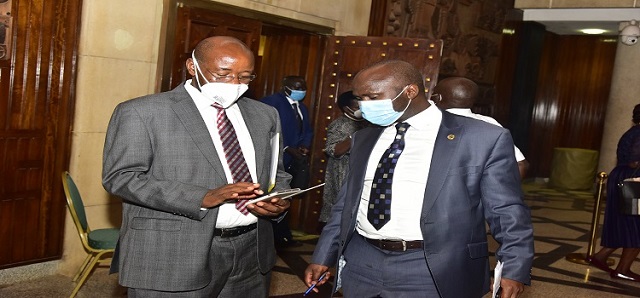
Kampala, Uganda | THE INDEPENDENT | Minister of State for Trade, Harriet Ntabazi has told Parliament that government stayed imposition of the specific duty rates of US$ 3 and US$ 3.5 per kilogramme for fabrics and garments respectively.
Ntabazi made this revelation while presenting a ministerial statement on the would have been strike by textile dealers in Kampala due to the decision by Uganda Revenue Authority (URA) to use textile weight for taxation.
“Government considered the traders’ concerns and revised its earlier position on the remaining 47 products (tariff lines) and stayed application of the specific duty,” she said.
Ntabazi added that after a meeting with the traders in the presence of the Finance Minister, they agreed to deal with the traders concerns. The issue had been earlier raised by the Kasilo County MP, Elijah Okupa, who then noted that traders were unhappy with paying taxes per kilogramme when fabrics and garments do not weigh the same.
Speaker Jacob Oulanyah was concerned about the provisions in the law which relate to taxation.
“Did they amend the laws mid-term without Parliament? These are points we need to know; we are in the budget process, why would you break the financial year into two regimes? Why don’t we review it with the budget so that we don’t disrupt the market,” he asked.
The State Minister for Finance, Amos Lugoolobi said that they had to choose one line of tax because there was a stalemate in the industry and containers were stuck in customs.
He added that after the specified period, when the law was passed some goods were in transit.
“We saw that many traders had already ordered for their goods; we thought this time would enable them to clear their goods that were already in transit. After that period, we shall have a review with them to see if we should keep the 35 per cent or keep the US$3 or US$3.5 per kilogramme,” he said.
*****
SOURCE: UGANDA PARLIAMENT MEDIA
 The Independent Uganda: You get the Truth we Pay the Price
The Independent Uganda: You get the Truth we Pay the Price





